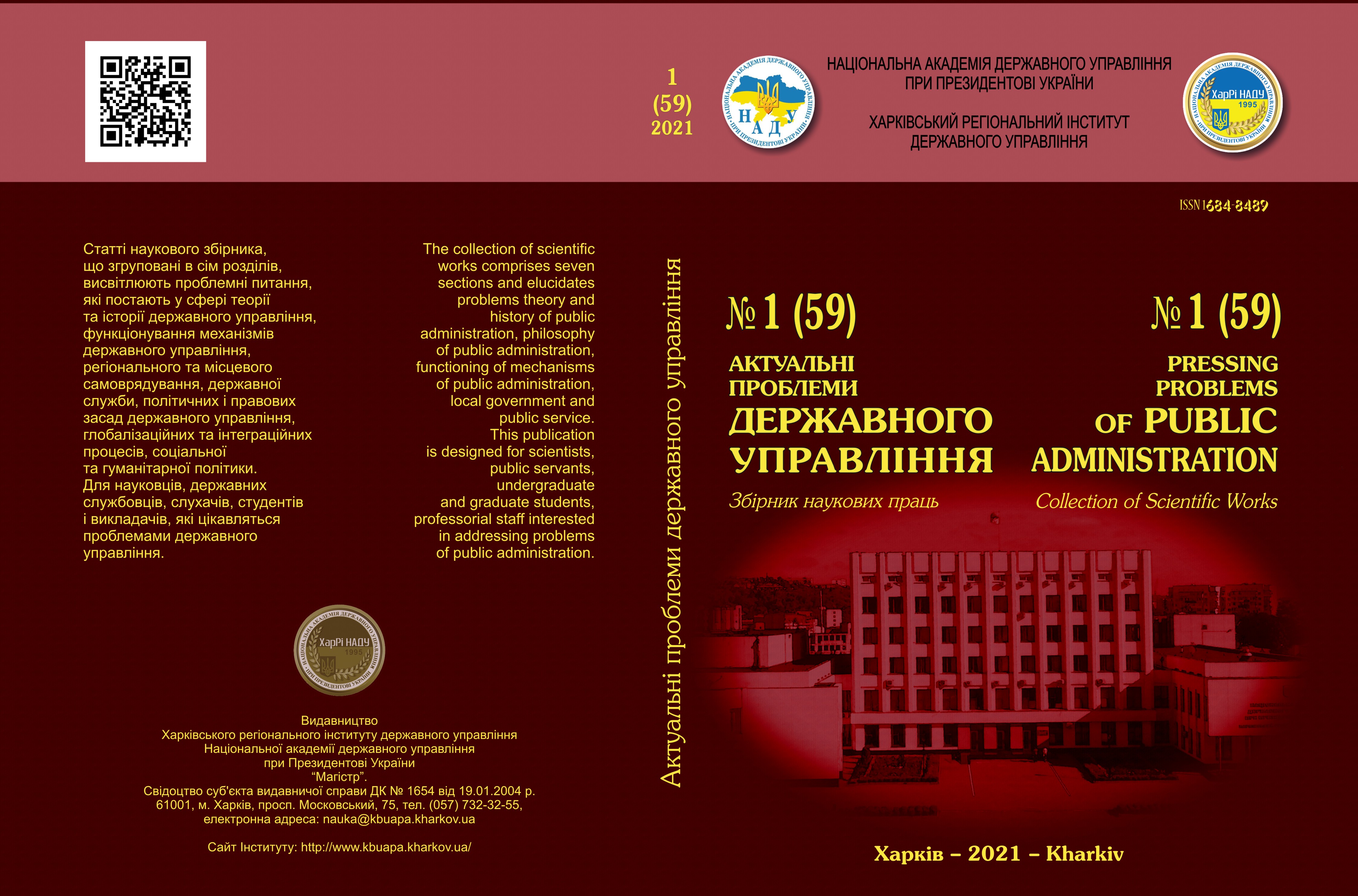INSTITUTIONALIZATION OF STATE AND SOCIETY INTERACTIONS AS A PILLAR TO ESTABLISH EFFECTIVE COUNTRY
Abstract
The article is devoted to analysis on institutionalization process of state and society interactions as a pillar to establish effective country. It is noted that successful and efficient modernization processes, as well as strategic consistency in achievement of social transformations’ objectives in transitive community, depend on the level and quality of cooperation between government and society. In broad context state and society relations’ institutionalization may be studied and examined in two fundamental aspects. The first one proposes to review it at the level of standards and rules, the second one – at organizational level – that of relations, citizens belonging to different social groups and classes are above all. In effect, communications’ role is extremely increasing as imperative in alteration of political entity, transforming social capacity and relationship among principal politicians. According to this, both imperative and requirements to present public administration system are changing, in view of the fact this system (based on participatory principles and approaches) must synthesize government’s efforts (professional managers’ ones) and institutions in civil society. Hence public administration is initiating to fulfill the function on social coordination, together with exemplary system of state management. A significant instrument in governmental and public interactions’ institutionalization is introduction of such forms as public discussion, public meeting, public inspection, public audition, public budget. A noticeable tendency is creation of new forms in system of state management functions – public administration, with assistance of which public community’s impact on political and governmental decisions, taking into account citizens’ interests and their political, economic and public associations is made. Virtually, it is about searching for new models in society and state interactions and state’s institutions. Accordingly, either content of policy and political area or policy and governance correlation are altering, with priorities in state’s economy and policy development and its prospective management. Principles of stable politics, responsible state red tape, developed personal funds, higher management quality and effective state development not only for administrative apparatus’ improved efficiency, activation of state management, but for leadership activation, public initiatives, increased transparency and trust in both state and public segments are gaining more and more significance.
Downloads
References
Ben, O.T. (2012). Institutsializaziya: teoretichna interpretatsia poniatya [Institutionalization: Theoretical Interpretation of the Concept]. Visnyk Lvivskogo universitetu. Seria sociologichna, 6, 181–190 [in Ukrainian].
Wallerstein, I. (2004). Konets znakomogo mira: Sociologia XXI veka. [The End of the World as We Know It: Sociology of the XXI century]. Moscow. URL: http://library.kre.dp.ua/Books/2-4 kurs/Соціологія/ [in Russian].
Patrushev, S.V. (2009). Grazdanskaya aktivnist: institutcionalny podhod (perspective issledovaniya) [Civil activity: institutional approach (prospects for research]. Polis. Poleticheskie issledovaniya, 6, 24–32 [in Russian].
Fisun, O.A. (2006). Democratiya, Neopatrimonialism, I globalny transformatciї [Democracy, Neopatrimonialism and Global Transformations]. Kharkiv: Konstanta [in Ukrainian].
Shevchenko, O.M. (2016). Osoblivosti komunikatcsy z gromadskistiu u publichnomu upravlinni [Features of Public Communications in Public Administration]. Publichnt upravlinnia: naukovi doslidjennia ta rozvitok, 2, 61–68 [in Ukrainian].
Ashby, W.R. (1959). Vvedenie v kibernrtiku [An Introduction to Cybernetics]. Moscow [in Russian].
Andersen, A. (2009). Partisanship or cognitive mobilisation? A case study of the 2003 Czech EU accession referendum. Limerick papers in politics and public administration. Department of politics and public administration. Uniersity of Limerick, Limerick, Ireland, 2. URL: http://www.ul.ie/ppa/content/files/Andersen_partisan-ship.pdf.
Castels, M. (2010). The Rise of the Network Society. 2nd ed. Malden, MA, Oxford, UK, Chichester. UK: Wiley-Blackwell. URL: https://deterritorialinvestigations.files.wordpress.com/2015/03/manuel_castells_the_rise_of_the_network_societybookfi-org.pdf.
Williams, K. (2008). Social Networks and Social Capital: Rethinking Theory in Community Informatics. Community Informatics. A global e-journal, vol. 4, 3. URL: http://cijournal.net/index.php/ciej/issue/view/23.

